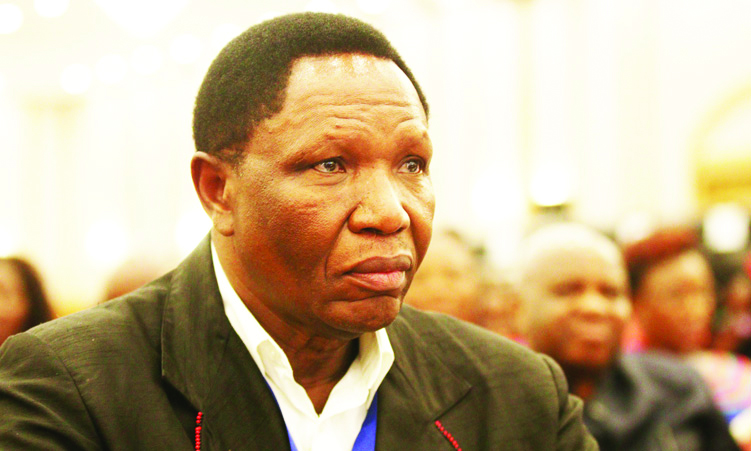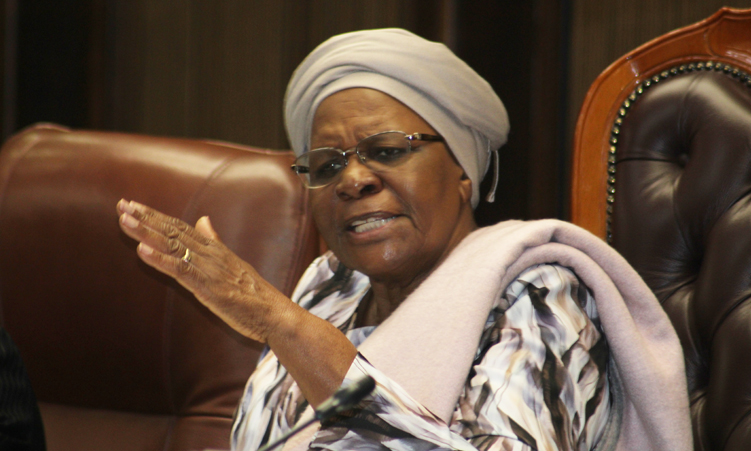The public expects people in political positions to have a thicker skin than others, a High Court judge has remarked in a judgement in which she absolved Swapo member Reinhold Shipwikineni from a defamation claim that fellow party member Charles Mubita filed against him.
“When dealing with politicians and political expression of views, it becomes more difficult to pass the test of defamation in that there is a general expectancy from the public for politicians to have a thicker skin, and political commentary can at times be robust,” judge Eileen Rakow said in a judgement delivered in the Windhoek High Court on Friday.
Rakow added: “Here, the interest of the public comes into play and their interest to debate political matters and make political comments.”
She noted that Mubita “is clearly a public persona and a politician and the comments made by [Shipwikineni] relate to political matters and have political context”.
Rakow granted Shipwikineni absolution from the instance in the defamation claim that Mubita filed against him in March last year.
This means that Shipwikineni will not be required to present his defence to Mubita’s claim to the court, after Rakow found that Mubita did not present evidence on which the court might rule in his favour by finding that Shipwikineni made defamatory remarks about him.
Mubita, who is a member of Swapo’s central committee and politburo, and is set to join the ranks of Swapo members in the National Assembly next month, sued Shipwikineni for N$370 000.
He claimed Shipwikineni made defamatory remarks about him in a WhatsApp audio message distributed on 2 March last year.
In the message, Shipwikineni criticised Mubita over his support for Netumbo Nandi-Ndaitwah as Swapo’s candidate in the 2024 presidential election, and expressed his hope that the party would instead nominate former Cabinet member Jerry Ekandjo as its presidential candidate. Shipwikineni’s remarks in the recording included a claim that Mubita, as a representative of former People’s Liberation Army of Namibia (Plan) members, was being used like toilet paper by people betraying Swapo’s constitution and the party’s election rules and procedures.
Shipwikineni’s lawyer, Norman Tjombe, applied for the claim against his client to in effect be dismissed after Mubita had testified before Rakow in November last year.
Rakow recounted that Tjombe argued: “As a public figure, [Mubita] should be able to tolerate far more robust critique than an ordinary person.”
Tjombe also argued that Shipwikineni’s remarks had to be understood in the context of the choice of a successor to president Hage Geingob that the Swapo leadership had to make after Geingob’s death last year.
On behalf of Mubita, his lawyer, Sisa Namandje, argued that Shipwikineni’s remarks were false, that he knew they were false, and that the sole purpose of his remarks was to harm Mubita’s reputation and dignity for political reasons, Rakow also recounted.
Rakow said it was clear from the evidence before her that Mubita was aggrieved by what Shipwikineni said in the recording, and that he took exception to the wording used and the references made to him.
However, she added, the public generally expects politicians to have a thicker skin than other persons.
Rakow quoted from a 2013 judgement of the South Gauteng High Court in South Africa: “Although politicians are not expected to endure every infringement of their personality rights, they must expect to be criticised and they do have to be more resilient to slings and arrows than non-political, private mortals.”
The judge ordered Mubita to pay Shipwikineni’s legal costs in the matter.
Stay informed with The Namibian – your source for credible journalism. Get in-depth reporting and opinions for
only N$85 a month. Invest in journalism, invest in democracy –
Subscribe Now!










